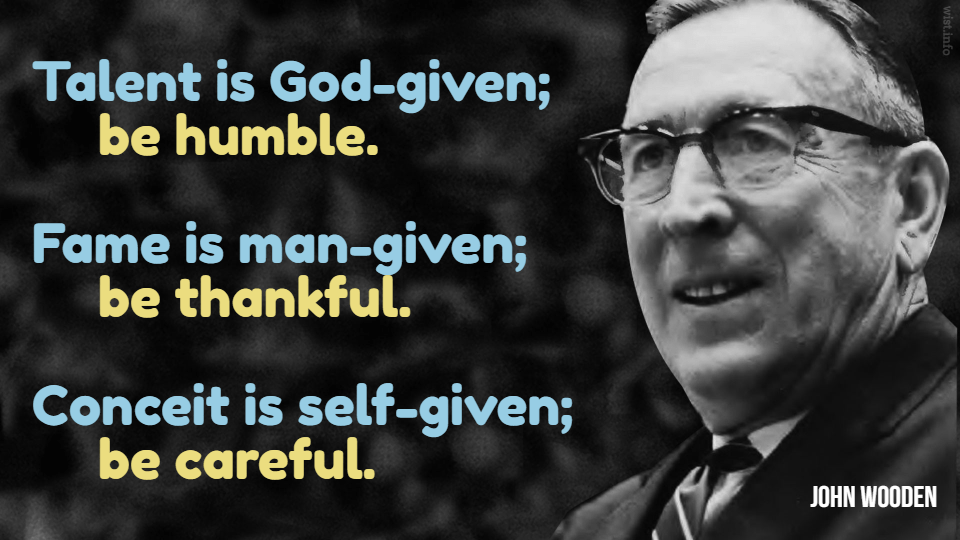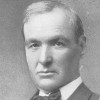Men of all races have always sought for a convincing explanation of their own astonishing excellence and they have frequently found what they were looking for.
Aubrey Menen (1912-1989) British writer, novelist, satirist, theatre critic
Dead Man in the Silver Market, ch. 1, opening lines (1954)
(Source)
Quotations about:
pride
Note not all quotations have been tagged, so Search may find additional quotes on this topic.
In artful boasting, one states all the information necessary to impress people, but keeps the facts decently clothed in the language of humility. Useful approaches include Disbelief, Fear and Manic Elation. For some reason, these are considered to be more attractive human emotions than justifiable pride or self-satisfaction. Probably because they are not as much fun.
For nothing is more blamefull to a Knight,
That court’sie doth as well as armes professe,
However strong and fortunate in fight,
Then the reproch of pride and cruelnesse:
In vain he seeketh others to suppresse,
Who hath not learned himself first to subdue:
All flesh is frayle and full of ficklenesse,
Subject to fortunes chance, still chaunging new;
What haps to-day to me to-morrow may to you.Edmund Spenser (c. 1552-1599) English poet
The Faerie Queene, Book 6, canto 1, st. 41 (1590-96)
(Source)
Nothing is more deceitful than the appearance of humility. It is often only carelessness of opinion, and sometimes an indirect boast.
In youth, it was a way I had
To do my best to please,
And change, with every passing lad,
To suit his theories.But now I know the things I know,
And do the things I do;
And if you do not like me so,
To hell, my love, with you!
We are never so certain of our knowledge as when we’re dead wrong.
Adair Lara (b. 1952) American writer, columnist, teacher
“A Lot of Knowledge Is Dangerous, Too,” San Francisco Chronicle (9 Oct 1997)
(Source)
To expose vices to the ridicule of all the world is a severe blow to them. Reprehensions are easily suffered, but not so ridicule. People do not mind being wicked; but they object to being made ridiculous.
[C’est une grande atteinte aux vices que de les exposer à la risée de tout le monde. On souffre aisément des répréhensions, mais on ne souffre point la raillerie. On veut bien être méchant, mais on ne veut point être ridicule.]
Molière (1622-1673) French playwright, actor [stage name for Jean-Baptiste Poquelin]
Tartuffe, Preface (1664) [tr. Van Laun (1876)]
(Source)
Alt. trans.: "To expose vices to everyone’s laughter is to deal them a mighty blow. People easily endure reproofs, but they cannot at all endure being made fun of. People have no objection to being considered wicked, but they are not willing to be considered ridiculous." [tr. Kerr]
Natur iz a kind mother. She couldn’t well afford to make us perfekt, and so she made us blind to our failings.
[Nature is a kind mother. She couldn’t well afford to make us perfect, and so she made us blind to our failings.]
Josh Billings (1818-1885) American humorist, aphorist [pseud. of Henry Wheeler Shaw]
Everybody’s Friend, Or; Josh Billing’s Encyclopedia and Proverbial Philosophy of Wit and Humor, “Lobstir Sallad” (1874)
(Source)
That seems to point up a significant difference between Europeans and Americans:
A European says: I can’t understand this, what’s wrong with me?
An American says: I can’t understand this, what’s wrong with him?
One of the sure signs of maturity is the ability to rise to the point of self criticism.
Martin Luther King, Jr. (1929-1968) American clergyman, civil rights leader, social activist, preacher
“The Rising Tide of Racial Consciousness,” Speech, National Urban League, New York (6 Sep 1960)
(Source)
I was often humiliated to see men disputing for a piece of bread, just as animals might have done. My feelings on this subject have very much altered since I have been personally exposed to the tortures of hunger. I have discovered, in fact, that a man, whatever may have been his origin, his education, and his habits, is governed, under certain circumstances, much more by his stomach than by his intelligence and his heart.
François Arago (1786-1853) French Catalan mathematician, physicist, astronomer, politician
Biographies of Distinguished Scientific Men, “The History of My Youth” (1859) [tr. Smyth, Powell, Grant]
(Source)
Nothing is more embarrassing in the ordinary intercourse of life than this irritable patriotism of the Americans. A stranger may be well inclined to praise many of the institutions of their country, but he begs permission to blame some of the peculiarities which he observes — a permission which is however inexorably refused.
Alexis de Tocqueville (1805-1859) French writer, diplomat, politician
Democracy in America, Vol. 1, “Public Spirit in the United States” (1835) [tr. Reeve (1839)]
(Source)
The man who has nothing to boast of but his illustrious ancestry, is somewhat like a potatoe, the only good thing is under ground.
Thomas Overbury (1581-1613) English poet
Characters (1612)
(Source)
Referenced in John Ireland, Letters and Poems by the Late Mr. John Henderson (1786). Variant: "The man who has not anything to boast of but his illustrious ancestors, is like a potatoe, the only good belonging to him is under ground." -- The Lady's Monthly Museum (June 1807).
Talent is God-given; be humble. Fame is man-given; be thankful. Conceit is self-given; be careful.
HENRY: This story shall the good man teach his son;
And Crispin Crispian shall ne’er go by
From this day to the ending of the world,
But we in it shall be remember’d, —
We few, we happy few, we band of brothers.
For he to-day that sheds his blood with me,
Shall be my brother; be he ne’er so vile,
This day shall gentle his condition:
And gentlemen in England, now a-bed,
Shall think themselves accurs’d, they were not here,
And hold their manhoods cheap, whiles any speaks,
That fought with us upon Saint Crispin’s day.William Shakespeare (1564-1616) English dramatist and poet
Henry V, Act 4, sc. 3, l. 58ff (4.3.58-69) (1599)
(Source)
You can tell the character of every man when you see how he gives and receives praise.
Seneca the Younger (c. 4 BC-AD 65) Roman statesman, philosopher, playwright [Lucius Annaeus Seneca]
Moral Letters to Lucilius [Epistulae morales ad Lucilium], Letter 52 “On choosing our teachers,” Sec. 12
(Source)
Wisdom is corrupted by ambition, even when the quality of the ambition is intellectual. For ambition, even of this quality, is but a form of self-love ….
Henry Taylor (1800-1886) English dramatist, poet, bureaucrat, man of letters
Notes from Life, “Wisdom” (1847)
(Source)
Another flaw in the human character is that everybody wants to build and nobody wants to do maintenance.
Sure, there are differences in degree, but we’ve got to stop comparing wounds and go out after the system that does the wounding.
Again, it is proper to the magnanimous person to ask for nothing, or hardly anything, but to help eagerly. When he meets people with good fortune or a reputation for worth, he displays his greatness, since superiority over them is difficult and impressive, and there is nothing ignoble in trying to be impressive with them. But when he meets ordinary people, he is moderate, since superiority over them is easy, and an attempt to be impressive among inferiors is as vulgar as a display of strength against the weak.
[μεγαλοψύχου δὲ καὶ τὸ μηδενὸς δεῖσθαι ἢ μόλις, ὑπηρετεῖν δὲ προθύμως, καὶ πρὸς μὲν τοὺς ἐν ἀξιώματι καὶ εὐτυχίαις μέγαν εἶναι, πρὸς δὲ τοὺς μέσους μέτριον: τῶν μὲν γὰρ ὑπερέχειν χαλεπὸν καὶ σεμνόν, τῶν δὲ ῥᾴδιον, καὶ ἐπ᾽ ἐκείνοις μὲν σεμνύνεσθαι οὐκ ἀγεννές, ἐν δὲ τοῖς ταπεινοῖς φορτικόν, ὥσπερ εἰς τοὺς ἀσθενεῖς ἰσχυρίζεσθαι.]
Aristotle (384-322 BC) Greek philosopher
Nicomachean Ethics [Ἠθικὰ Νικομάχεια], Book 4, ch. 3 (4.3.26) / 1124b.18 (c. 325 BC) [tr. Irwin (1999)]
(Source)
The core word Aristotle is using is μεγαλοψυχία (translated variously as high-mindedness, great-mindedness, pride, great-soulness, magnanimity). (Source (Greek)). Alternate translations:
Further, it is characteristic of the Great-minded man to ask favours not at all, or very reluctantly, but to do a service very readily; and to bear himself loftily towards the great or fortunate, but towards people of middle station affably; because to be above the former is difficult and so a grand thing, but to be above the latter is easy; and to be high and mighty towards the former is not ignoble, but to do it towards those of humble station would be low and vulgar; it would be like parading strength against the weak.
[tr. Chase (1847)]
It would seem, too, that the high-minded man asks favours of no one, or, at any rate, asks them with the greatest reluctance, but that he is always eager to do good offices to others; and that towards those in high position and prosperity he bears himself with pride, but towards ordinary men with moderation; for in the former case it is difficult to show superiority, and to do so is a lordly mater; whereas in the latter case it is easy. To be haughty among the great is no proof of bad breeding, but haughtiness among the lowly is as base-born a thing as it is to make trial of great strength upon the weak.
[tr. Williams (1869)]
It is characteristic too of the high-minded man that he never, or hardly ever, asks a favor, that he is ready to do anybody a service, and that, although his bearing is stately towards person of dignity and affluence, it is unassuming toward the middle class; for while it is a difficult and dignified thing to be superior to the former, it is easy enough to be superior to the latter, and while a dignified demeanour in dealing with the former is a mark of nobility, it is a mark of vulgarity ind ealing with the latter, as it like a display of physical strength at the expense of an invalid.
[tr. Welldon (1892), ch. 8]
It is characteristic of the high-minded man, again, never or reluctantly to ask favours, but to be ready to confer them, and to be lofty in his behaviour to those who are high in station and favoured by fortune, but affable to those of the middle ranks; for it is a difficult thing and a dignified thing to assert superiority over the former, but easy to assert it over the latter. A haughty demeanour in dealing with the great is quite consistent with good breeding, but in dealing with those of low estate is brutal, like showing off one’s strength upon a cripple.
[tr. Peters (1893)]
It is a mark of the proud man also to ask for nothing or scarcely anything, but to give help readily, and to be dignified towards people who enjoy high position and good fortune, but unassuming towards those of the middle class; for it is a difficult and lofty thing to be superior to the former, but easy to be so to the latter, and a lofty bearing over the former is no mark of ill-breeding, but among humble people it is as vulgar as a display of strength against the weak.
[tr. Ross (1908)]
It is also characteristic of the great-souled man never to ask help from others, or only with reluctance, but to render aid willingly; and to be haughty towards men of position and fortune, but courteous towards those of moderate station, because it is difficult and distinguished to be superior to the great, but easy to outdo the lowly, and to adopt a high manner with the former is not ill-bred, but it is vulgar to lord it over humble people: it is like putting forth one's strength against the weak.
[tr. Rackham (1934)]
It is also characteristic of a great-souled person to ask for nothing or hardly anything but to offer his services eagerly, and to exhibit his greatness to those with a reputation for great worth or those who are enjoying good luck, but to moderate his greatness to those in the middle. For it is a difficult and a dignified thing to show oneself superior to the former, but an easy one to do so to the latter, and, while adopting a dignified manner toward the former is not ill-bred, to do so toward humble people is vulgar, like displaying strength against the weak.
[tr. Reeve (1948)]
It is the mark of a high-minded man, too, never, or hardly ever, to ask for help, but to be of help to others readily, and to be dignified with men of high position or of good fortune, but unassuming with those of middle class, for it is difficult and impressive to be superior to the former, but easy to be so to the latter; and whereas being impressive to the former is not a mark of a lowly man, being so to the humble is crude -- it is like using physical force against the physically weak.
[tr. Apostle (1975)]
Another mark of the magnanimous man is that he never, or only reluctantly, makes a request, whereas he is eager to help others. He his haughty toward those who are influential and successful, but moderate toward those who have an intermediate position in society, because in the former case to be superior is difficult and impressive, but in the latter it is easy' and to create an impression at the expense of the former is not ill-bred, but to do so among the humble is vulgar.
[tr. Thomson/Tredennick (1976)]
It is also characteristic of a great-souled person to ask for nothing, or almost nothing, but to help others readily; and to be dignified in his behavior towards people of distinction or the well-off, but unassuming toward people at the middle level. Superiority over the first group is difficult and impressive, but over the second it is easy, and attempting to impress the first group is not ill-bred, while in the case of humble people it is vulgar, like a show of strength against the weak.
[tr. Crisp (2000)]
It belongs to the great-souled also to need nothing, or scarcely anything, but to be eager to be of service, and to be great in the presence of people of worth and good fortune, but measured toward those of a middling rank. For it is a difficult and august thing to be superior among the fortunate, but easy to be that way among the middling sorts; and to exalt oneself among the former is not a lowborn thing, but to do so among the latter is crude, just as is using one's strength against the weak.
[tr. Bartlett/Collins (2011)]
Sometimes paraphrased:
It is not ill-bred to adopt a high manner with the great and the powerful, but it is vulgar to lord it over humble people.
The capacity of a human mind to believe devoutly in what seems to me to be the highly improbable — from table tapping to the superiority of their own children — has never been plumbed. Faith strikes me as intellectual laziness, but I don’t argue with it — especially as I am rarely in a position to prove that it is mistaken.
Robert A. Heinlein (1907-1988) American writer
Stranger in a Strange Land, ch. 18 (1960 ed., publ. 1991)
(Source)
An elided version is found in the 1961 published edition, in ch. 13.
After all, vanity is as much a virtue as a vice. It is easy to recite copy-book maxims against its sinfulness, but it is a passion that can move us to good as well as to evil. Ambition is only vanity ennobled. We want to win praise and admiration — or Fame as we prefer to name it — and so we write great books, and paint grand pictures, and sing sweet songs; and toil with willing hands in study, loom, and laboratory.
Jerome K. Jerome (1859-1927) English writer, humorist [Jerome Klapka Jerome]
“On Vanity and Vanities,” The Idle Thoughts of an Idle Fellow (1889)
(Source)
Lord God of Hosts, be with us yet,
Lest we forget — lest we forget!
Let us be content to do little, if God sets us at little tasks. It is but pride and self-will which says, “Give me something huge to fight, — and I should enjoy that — but why make me sweep the dust?”
Charles Kingsley (1819-1875) English clergyman, historian, essayist, novelist (pseud. "Parson Lot")
Letter, “To a lady who consulted him about Sisterhoods” (24 Jul 1854)
(Source)
We are the highest achievement reached so far by the great constructors of evolution. We are their “latest” but certainly not their last word. The scientist must not regard anything as absolute, not even the laws of pure reason. He must remain aware of the great fact, discovered by Heraclitus, that nothing whatever really remains the same even for one moment, but that everything is perpetually changing. To regard man, the most ephemeral and rapidly evolving of all species, as the final and unsurpassable achievement of creation, especially at his present-day particularly dangerous and disagreeable stage of development, is certainly the most arrogant and dangerous of all untenable doctrines.
Konrad Lorenz (1903-1989) Austrian zoologist, ethologist, ornithologist
On Aggression, ch. 12 “On the Virtue of Scientific Humility” (1963)
(Source)
It was said that God, in order to test mankind which had become swelled with pride as in the time of Noah, had commanded the wise men of that age, among them the Blessed Leibowitz, to devise great engines of war such as had never before been upon the Earth, weapons of such might that they contained the very fires of Hell, and that God had suffered these magi to place the weapons in the hands of princes, and to say to each prince: “Only because the enemies have such a thing have we devised this for thee, in order that they may know that thou hast it also, and fear to strike. See to it, m’Lord, that thou fearest them as much as they shall now fear thee, that none may unleash this dread thing which we have wrought.” But the princes, putting the words of their wise men to naught, thought each to himself: If I but strike quickly enough, and in secret, I shall destroy these others in their sleep, and there will be none to fight back; the earth shall be mine.
Such was the folly of princes, and there followed the Flame Deluge.
“Which of them shall be accounted greatest?” Let the churches stop trying to outstrip each other in the number of their adherents, the size of its sanctuary, the abundance of wealth. If we must compete let us compete to see which can move toward the greatest attainment of truth, the greatest service of the poor, and the greatest salvation of the soul and bodies of men. If the Church entered this kind of competition we can imagine what a better world this would be.
Martin Luther King, Jr. (1929-1968) American clergyman, civil rights leader, social activist, preacher
“Cooperative Competition / Noble Competition,” sermon outline
(Source)
Proud people breed sad sorrows for themselves.
Emily Brontë (1818-1848) British novelist, poet [pseud. Ellis Bell]
Wuthering Heights, ch. 7 (1847) [Nelly Dean]
(Source)
He spoke the following parable to some people who prided themselves on being virtuous and despised everyone else, “Two men went up to the Temple to pray, one a Pharisee, the other a tax collector. The Pharisee stood there and said this prayer to himself, ‘I thank you, God, that I am not grasping, unjust, adulterous like the rest of mankind, and particularly that I am not like this tax collector here. I fast twice a week; I pay tithes on all I get.’ The tax collector stood some distance away, not daring even to raise his eyes to heaven; but he beat his breast and said, ‘God, be merciful to me, a sinner.’ This man, I tell you, went home again at rights with God; the other did not. For everyone who exalts himself will be humbled, but the man who humbles himself will be exalted.”
The Bible (The New Testament) (AD 1st - 2nd C) Christian sacred scripture
Luke 18:9-14, “The Parable of the Pharisee and the Tax Collector” [Jerusalem]
(Source)
And he spake this parable unto certain which trusted in themselves that they were righteous, and despised others: Two men went up into the temple to pray; the one a Pharisee, and the other a publican. The Pharisee stood and prayed thus with himself, God, I thank thee, that I am not as other men are, extortioners, unjust, adulterers, or even as this publican. I fast twice in the week, I give tithes of all that I possess. And the publican, standing afar off, would not lift up so much as his eyes unto heaven, but smote upon his breast, saying, God be merciful to me a sinner. I tell you, this man went down to his house justified rather than the other: for every one that exalteth himself shall be abased; and he that humbleth himself shall be exalted.
[KJV]
He also told this parable to some who trusted in themselves that they were righteous and regarded others with contempt: “Two men went up to the temple to pray, one a Pharisee and the other a tax collector. The Pharisee, standing by himself, was praying thus, ‘God, I thank you that I am not like other people: thieves, rogues, adulterers, or even like this tax collector. I fast twice a week; I give a tenth of all my income.’ But the tax collector, standing far off, would not even lift up his eyes to heaven but was beating his breast and saying, ‘God, be merciful to me, a sinner!’ I tell you, this man went down to his home justified rather than the other, for all who exalt themselves will be humbled, but all who humble themselves will be exalted.”
[NRSV]
Jesus also told this parable to people who were sure of their own goodness and despised everybody else. “Once there were two men who went up to the Temple to pray: one was a Pharisee, the other a tax collector. The Pharisee stood apart by himself and prayed, ‘I thank you, God, that I am not greedy, dishonest, or an adulterer, like everybody else. I thank you that I am not like that tax collector over there. I fast two days a week, and I give you one tenth of all my income.’ But the tax collector stood at a distance and would not even raise his face to heaven, but beat on his breast and said, ‘God, have pity on me, a sinner!’ I tell you,” said Jesus, “the tax collector, and not the Pharisee, was in the right with God when he went home. For those who make themselves great will be humbled, and those who humble themselves will be made great.” [GNT]
Glorious men are the scorn of wise men, the admiration of fools, the idols of parasites, and the slaves of their own vaunts.
Francis Bacon (1561-1626) English philosopher, scientist, author, statesman
“Of Vain-Glory,” Essays, No. 54 (1625)
(Source)
You know, here in America we’re loyal to our flaws. It’s like, if we change even our flaws there’s something wrong.
William "Bill" Maher (b. 1956) American comedian, political commentator, critic, television host.
“Bill Maher, Incorrect American Patriot,” Interview with Sharon Waxman, Washington Post (8 Nov 2002)
(Source)
When you get to be President, there are all those things, the honors, the twenty-one gun salutes, all those things. You have to remember it isn’t for you. It’s for the Presidency.
Whoo-oop! I’m the old original iron-jawed, brass-mounted, copper-bellied corpse-maker from the wilds of Arkansaw. — Look at me! I’m the man they call Sudden Death & General Desolation! Sired by a hurricane, dam’d by an earthquake, half-brother to the cholera, nearly related to the small-pox on the mother’s side! Look at me! I take nineteen alligators and a bar’l of whiskey for breakfast when I’m in robust health, and a bushel of rattlesnakes and a dead body when I’m ailing! I split the everlasting rocks with my glance, and I squench the thunder when I speak! Whoo-oop! Stand back and give me room according to my strength! Blood’s my natural drink, and the wails of the dying is music to my ear! Cast your eye on me, gentlemen! — and lay low and hold your breath, for I’m bout to turn myself loose!
You should show the least vanity about your greatest gifts. Content yourself with doing: leave saying to others.
[Afecte menos sus mayores eminencias. Conténtese con hacer, y deje para otros el decir.]
Baltasar Gracián y Morales (1601-1658) Spanish Jesuit priest, writer, philosopher
The Art of Worldly Wisdom [Oráculo Manual y Arte de Prudencia], § 295 (1647) [tr. Maurer (1992)]
(Source)
(Source (Spanish)). Alternate translations:
Shew as little as thou canst thy most eminent qualities. Rest satisfied to doe, and leave it to others to talk of it.
[Flesher ed. (1685)]
The greater your exploits the less you need affect them: content yourself with doing, leave the talking to others.
[tr. Jacobs (1892)]
Real achievement needs no such affectation. Rest in accomplishment, and leave talk to others. Do, and do not brag.
[tr. Fischer (1937)]
Make the least ado about your greatest gifts. Be content to act, and leave the talking to others.
[Source]
Although men are accused of not knowing their own weakness, yet perhaps as few know their own strength. It is in men as in soils, where sometimes there is a vein of gold, which the owner knows not of.
Jonathan Swift (1667-1745) English writer and churchman
“Thoughts on Various Subjects” (1706)
(Source)
There are two insults which no human being will endure: The assertion that he hasn’t a sense of humor, and the doubly impertinent assertion that he has never known trouble.
Sinclair Lewis (1885-1951) American novelist, playwright
Main Street, ch. 31, sec. 2 (1920)
(Source)
Every man of action has a strong dose of egotism, pride, hardness, and cunning. But all those things will be forgiven him, indeed, they will be regarded as high qualities, if he can make of them the means to achieve great ends.
Neither praise, nor dispraise thy self; thy Actions will do it enough.
Thomas Fuller (1654-1734) English physician, preacher, aphorist, writer
Introductio ad Prudentiam, Vol. 1, # 338 (1725)
(Source)
Thank goodness, many years ago, I had a preceptor, for whom my admiration has never died, and he had a favorite saying, one that I trust I try to live by. It was: always take your job seriously, never yourself.

























































